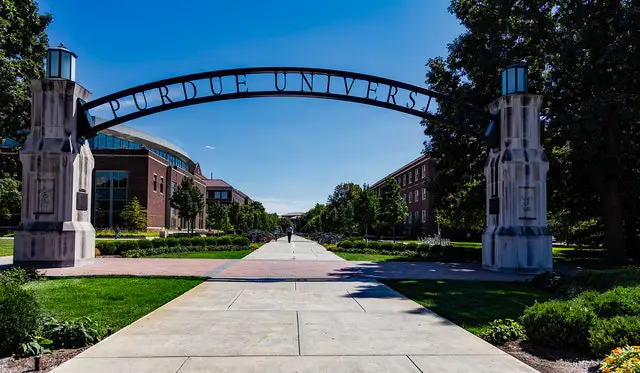Question:
Can I get a free scholarship to do masters in algebra?
Answer:
Yes, you can potentially get a free scholarship to pursue a master’s degree in algebra or a related field like pure mathematics. Many universities and organizations around the world offer fully funded scholarships for graduate programs, especially for students in the sciences, including mathematics. However, success in securing a scholarship depends on your academic record, personal achievements, and how well you meet the specific requirements of the scholarship or program.
Here’s a guide to help you secure a scholarship:
1. Scholarships and Funding Options
a) University-Specific Scholarships
Many universities offer scholarships to international students for postgraduate studies. These scholarships often cover tuition fees and sometimes include stipends for living expenses. Some examples:
-
Erasmus Mundus Joint Master Degrees (EU):
These programs offer fully funded scholarships to study in multiple European countries, including fields like mathematics. Look for algebra-focused or general mathematics master’s programs. -
Chevening Scholarships (UK):
These scholarships are fully funded and allow students to study any subject, including mathematics, in the UK. Apply for programs that align with your interest in algebra. -
DAAD Scholarships (Germany):
Germany is renowned for its high-quality education and offers fully funded scholarships for international students, especially in STEM fields, including mathematics. -
Fulbright Foreign Student Program (USA):
Fully funded scholarships for international students pursuing a master's degree in the U.S., covering tuition, living expenses, and more. -
Commonwealth Scholarships (UK):
For students from Commonwealth countries, covering full tuition and living expenses for master’s programs in the UK.
b) Government Scholarships
Some governments provide scholarships for their citizens or international students to study abroad:
- Swedish Institute Scholarships (Sweden):
Fully funded scholarships for students from specific countries, with programs in mathematics and related fields. - Australia Awards Scholarships:
Cover full tuition, living expenses, and airfare for students from eligible countries. - China Government Scholarship (CSC):
Provides full funding for international students to study in Chinese universities.
c) Specialized Scholarships for Mathematics
Some scholarships are targeted at mathematics students specifically:
- National Science Foundation Graduate Research Fellowship (USA):
Offers funding for master’s and PhD studies in mathematical sciences. - Abel Visiting Scholar Program (International):
Provides funding for students to study in Norway, focusing on mathematical sciences. - International Mathematical Union (IMU) Breakout Graduate Fellowships (Global):
Aimed at students from developing countries pursuing a master’s degree in mathematics.
2. Researching Universities with Algebra Expertise
Look for universities that have strong programs in algebra or pure mathematics. Many universities with a focus on research provide funding for students. Examples include:
- ETH Zurich (Switzerland): Renowned for its mathematics programs and offers scholarships for master’s students.
- University of Cambridge (UK): Offers scholarships for mathematical sciences, including algebra.
- Massachusetts Institute of Technology (MIT, USA): Known for its advanced mathematics programs.
- University of Göttingen (Germany): Famous for its strong mathematics department, especially in algebra and number theory.
3. Additional Tips to Strengthen Your Application
- Achieve High Grades: A strong academic record is critical for mathematics scholarships.
- Research Experience: If you’ve conducted research or written a thesis in algebra, highlight this in your application.
- Letters of Recommendation: Obtain strong recommendations from professors familiar with your mathematical abilities.
- Statement of Purpose: Clearly explain your passion for algebra, your academic background, and how the scholarship will help you achieve your goals.
- GRE Scores (if applicable): Some programs require the GRE, especially the GRE Math Subject Test, to demonstrate your proficiency.
4. Start Your Search
Use the following platforms to search for scholarships:
- Scholarship Databases: Websites like DAAD, or Chevening.
- University Websites: Visit the websites of universities with strong algebra programs and check their funding or financial aid sections.
- Contact Professors and Departments: Email professors or departments directly about funded opportunities for algebra-focused research.
5. Consider Applying for Teaching or Research Assistantships
Many universities offer assistantships to graduate students. These positions often include tuition waivers and stipends. As a teaching or research assistant in the mathematics department, you can fund your master’s studies while gaining valuable experience.
6. Countries Known for Free or Low-Cost Education
Even if you don't secure a full scholarship, some countries provide low-cost or nearly free education for international students:
- Germany: Many universities have no tuition fees for master's programs, especially in mathematics.
- Norway: Offers free education for all students, regardless of nationality.
- Finland: Free for EU/EEA students; affordable for non-EU/EEA students, with some scholarships available.
- France: Low tuition fees; scholarships like the Eiffel Excellence Scholarship are available.
Final Notes:
Pursuing a master’s in algebra with full funding is achievable if you carefully research and prepare strong applications. Focus on universities and programs that align with your interests and leverage their scholarship opportunities. Tailor your application to demonstrate your passion for algebra and your readiness to excel in graduate studies.







